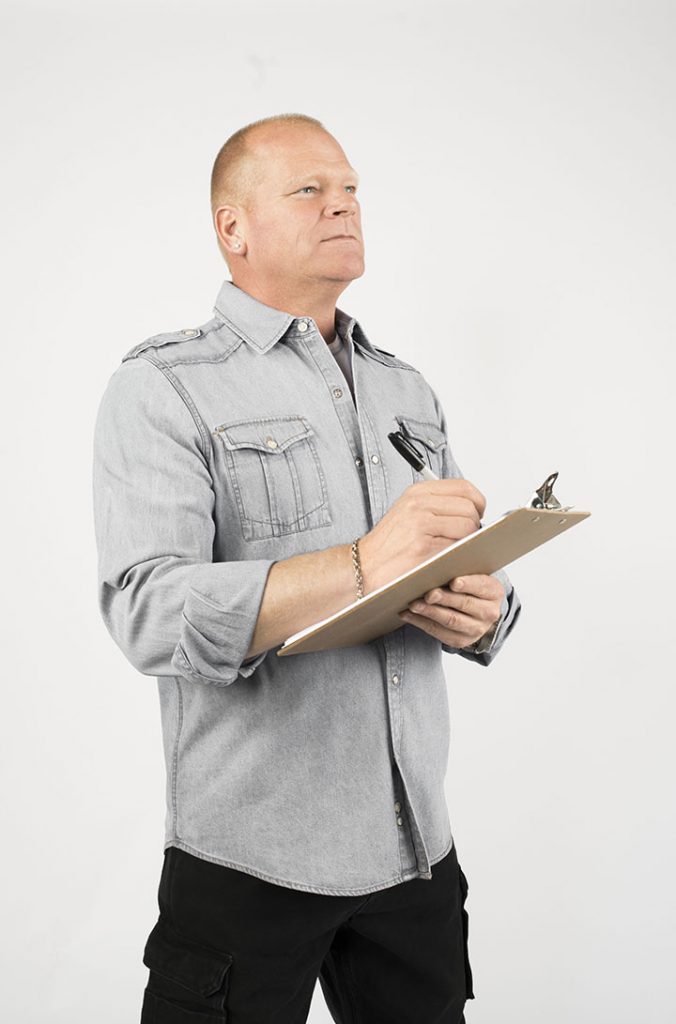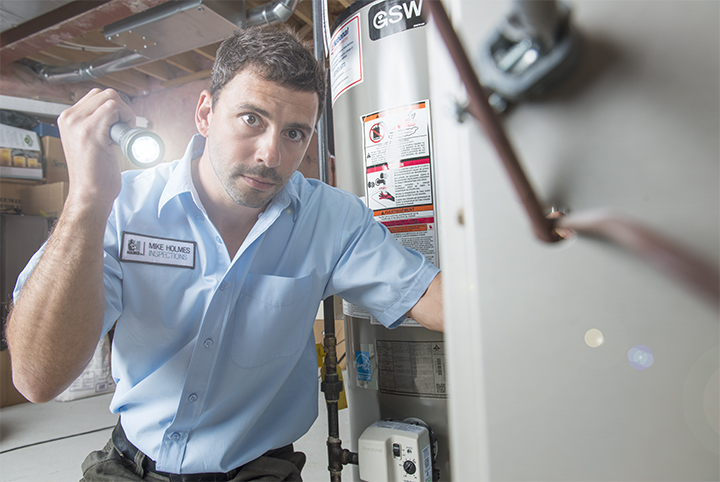
Mike Holmes is one of Home Network’s go-to contractors.
When it comes to buying a house, it really is “Buyer Beware”. This is why a home inspection is so important. People often ask if they need to be present during the home inspection. It’s not necessary, but I highly recommend it. Buying a home is one of the biggest investments you’ll ever make, so you’ll want to make sure you do it right. The following are some questions that you should be asking your home inspector.

- What Credentials Do You (the Home Inspector) Have?
You want to make sure you’re hiring the right professional to do your home inspection, so ask for their credentials. Do they belong to a professional organization and what training and qualifications are required? What certifications do they have? Are they insured? How long have they been inspecting homes? What did they do before becoming a home inspector? Your home inspector needs to be knowledgeable about red flags during an inspection. They need to be able to answer your questions and advise you. So make sure you do your research and hire the right person for the job.
2. What is the Condition of the Roof?
When your home inspector is checking out the roof, ask them about the condition of the shingles. Are there any that are buckling or missing? How about the eavestrough? Is there an accumulation of asphalt granules in the gutters? Are there signs of major wear and tear? If so, the home may be in need of a roof replacement.
A roof replacement isn’t cheap, so you can always ask that the sellers take care of replacing the roof, or you can ask for a price reduction to compensate.
3. How Well is the Home Insulated?
How well the home is insulated will have an impact on your heating/cooling costs. The attic should be well insulated to stop heat from escaping from the home. The insulation should have an R-Value of at least 60 (the R-Value is the capacity an insulating material has to resist heat flow – the higher the R-Value, the better the material can insulate). What kind of insulation is used? If vermiculite insulation is used, it can contain asbestos which can create a serious health risk if disturbed. Is the attic properly ventilated? How well is the basement insulated? Proper insulation and ventilation throughout the home is key to preventing mould and mildew growth.
RELATED: Mike Holmes Reveals the Two Crucial Things Your Attic Should Have
4. How is the Electrical?
Electrical fires are common so you’ll want your home inspector to check the home’s electrical. Is it up to code? Are there any parts that are worn? If there were any upgrades to the electrical, were they done by a licensed electrician? Is the electrical knob-and-tube? Some insurance companies won’t insure the house, or will charge a higher premium, if the electrical is knob-and-tube. Are the outlets that are near water sources, like the kitchen, bathrooms, garage, and outdoor locations, GFCI outlets? Are there any exposed or damaged wires? You’ll want to ensure the safety of the home’s electrical to protect the home and those who will be living in it.
5. How is the Plumbing?
A home inspector will evaluate drains, water heaters, pipes, water pressure and temperature. If you’re with your inspector during the inspection, flush the toilets to see how they perform. Does the water stop running once the toilet is filled? How is the water flow from each faucet? Does everything drain properly? Are tubs secured properly? Your home inspector should also note any waters stains on the floors or ceiling as it could indicate a problem with the plumbing system. Ask if there’s galvanized-steel piping in the house as they can rust, affecting water pressure, or can even rupture. Does the house have any lead piping? This is pretty common in older homes, but the lead piping can wear down over time and can get into the water supply, which is what you don’t want.

6. Is the Home Structurally Sound?
A home inspector will check that the home’s foundation is solid. Ask about any cracks that are found. Not all foundation cracks are serious, so if cracks are discovered, ask what type – step, vertical, horizontal, along walls or along the basement floor. Ask about the size of the cracks. If a dime can fit into the crack, it’s probably a good idea to get a second opinion from a foundation specialist or structural engineer.
7. How is the HVAC System?
During the inspection, the home’s heating, ventilation, and air-conditioning system (HVAC) will be checked out to make sure it’s properly functional. Ask how old the a/c unit is; how long should the unit last? Has the furnace been properly serviced and maintained? There should be some indication on the unit itself of any regular maintenance that may have been done.
RELATED: How Healthy is the Air in Your Home? Here’s How to Check
8. How is the Drainage Around the Exterior?
Take a walk with the inspector around the exterior of the home and ask about the drainage and grading. Are there any standing puddles? This could be an indication of a water issue. The ground should slope away from the home’s foundation, so if you notice any faulty grading, ask your inspector if it’s cause for concern. Are there any missing downspouts? Are all downspouts directed away from home’s foundation? Improper drainage and faulty grading can lead to costly foundation issues.
9. Any Signs of Mice or Other Critters?
Your home inspector may come across mice droppings or other evidence of some unwanted guests. Ask if an infestation is suspected. Mice and other rodents can cause significant damage to homes and can also pose a health risk.
10. What Now?
Your home inspection is complete and you’ve received the report. The most important thing to do now is to read it. Make sure you understand everything that’s in there. Contact the inspector and ask as many questions as you need. If the inspector recommends some additional follow-ups, like with the furnace or plumbing, do it. Make sure you have all the information you need to make a smart decision on what could potentially be your future home.
Images courtesy of The Holmes Group and Getty Images.
Home Network your inbox.
By clicking "SIGN UP” you agree to receive emails from Home Network and accept Corus' Terms of Use and Corus' Privacy Policy.



